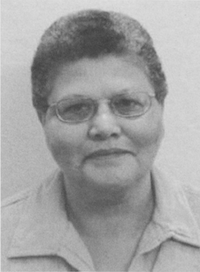Elfreda Chatman | |
|---|---|
 | |
| Born | 1942 |
| Died | January 15, 2002 (aged 59–60) |
| Occupation | Information science professor |
| Academic background | |
| Alma mater | Youngstown State University (B.S., 1971) Case Western Reserve University (M.S., 1976) University of California, Berkeley (Ph.D., 1983) |
| Thesis | The Diffusion of Information among the Working Poor (1983) |
| Doctoral advisor | Patrick Wilson |
| Academic work | |
| Discipline | Library and information science |
| Institutions | Louisiana State University UNC School of Information and Library Science Florida State University School of Library &Information Studies |
Elfreda Annmary Chatman (1942-2002) was an African-American researcher,professor,and former Catholic religious sister. [1] She was well known for her ethnographic approaches in researching information seeking behaviors among understudied or minority groups (poor people,the elderly,retired women,female inmates,and janitors).